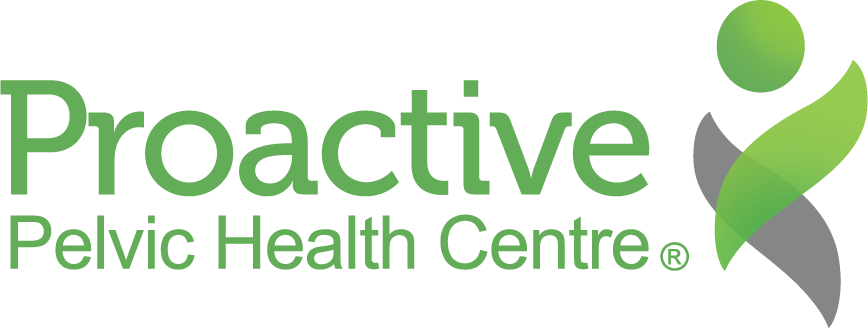Miscarriage and Mindful Self-Compassion
Together the practice of Mindful self-compassion has been shown to enhance our capacity for emotional wellbeing and is amongst the most powerful agents of brain change known to science. (Image by Designecologist)
I’ve been practicing mindfulness daily since I first completed the 8-week Mindfulness Based Stress Reduction (MBSR) course in 2011. This course was so beneficial in giving me the skills to cope better with chronic pain, stress, anxiety, depression and self judgement that I went on to complete professional training and became a qualified MBSR teacher myself. For the next seven years the daily practice of mindfulness has helped both my clients and myself to ride the waves of life’s challenges. Last year, however, I personally discovered the limitations of having only a mindfulness practice alone.
In October of 2018 I miscarried during my first pregnancy at eight weeks. I had an incredibly supportive community and believed that I had processed painful emotions well enough that I was able to move forward with confidence and hope. What I was not prepared for, however were the chemical related symptoms of postpartum depression that seemed to kick in a month after the miscarriage. I was under the impression that postpartum depression affected only those who had experienced childbirth – not also affecting those who had experienced a miscarriage.
With thoughts of harming myself arising, I immediately went to my family physician and asked to be referred to the Centre for Addiction and Mental Health to be assessed by a psychiatrist. I was diagnosed with “Generalized Anxiety Disorder and mood instability”. I was committed to my healing so soon after that diagnosis, I joined a course called Mindful Self-Compassion with the intention to learn new tools to navigate the emotional challenges and unstable moods I was experiencing.
During theMindful Self-Compassion course, I learned for the first time in my life, practical ways to give myself my own kind, compassion. And I was not alone. In a room with over 30 other people, it was interesting that for the majority of us, this was the first time in our lives we were learning how to tangibly practice self-care through skills in both mindfulness and self compassion. Examples of tangible tools include: affectionate breathing, soothing touch, savouring and the use of kind phrases.
So what exactly is self-compassion? Kristin Neff is the leading scientist in self-compassion defines it as: “compassion directed inward, relating to ourselves as the object of care and concern when faced with the experience of suffering” (Neff 2013). “It involves the capacity to comfort and soothe ourselves and to motivate ourselves with encouragement when we suffer, fail or feel inadequate.”
Self-compassion is different from self-esteem, which requires a comparison to others and sense of needing to be better. Consequently, self-esteem is conditional upon certain factors such as being better, the best, being validated or liked, and achieving particular outcomes (even if it’s just your daily to do list). While your self-esteem is conditional upon certain factors being met, self-compassion on the other hand is unconditional. No matter what you do (or don’t) and no matter how you feel (or don’t) self-compassion is an unconditional way of being accepting and kind to yourself – no matter how you are in each moment.
Dozens of other scientists have collaborated with Kristin Neff to explore the holistic benefits of self-compassion. Here are just a few:
Self -compassion is correlated with:
A release in oxytocin and opiates (Gilbert, 2009)
Better coping and resilience with chronic health conditions (Sirois, 2015)
Reductions in negative mind-states including anxiety, depression, rumination, perfectionism and shame and increases in positive mind-states including life satisfaction, happiness, connectedness, self-confidence, optimism, curiosity and gratitude (Zessin, Dickhauser & Garbadee, 2015)
More conscientiousness and improved intrinsic motivation and desire to learn and grow (Neff, Rude,& Kirkpatrick, 2007 and Neff, Hseih & Dejittharat, 2005)
Less body preoccupation and body shame; fewer weight worries, less disordered eating and more intuitive eating (Schoenefeld & Webb, 2013; Webb & Forman, 2013; and Albertson et al., 2014)
More compassion, empathy, altruism for others, and caring and supportive relationships including better romantic relationships (Neff & Beretvas, 2013 and Neff & Pommier, 2013)
Less care-giving burnout and compassion fatigue and more satisfaction with the caregiving role (Raab, 2014 and Barnard & Curry, 2012)
Now what is mindfulness? Overall, it is the practice of accepting each present moment. This practice of simply acknowledging what’s arising in each moment without judgement and resistance is usually the first step to affecting change and moving forward to heal and grow. But mindfulness alone is not enough. In addition to having the skills to mindfully accept how you are physically and emotionally feeling, you also need to have the skills to affect change so you can shift how you are feeling.
For instance, if I were to check in with myself right now, I may notice that I am feeling some anxiety about needing to have a cesarean delivery next year (I am currently five months pregnant!). Mindfulness allows me to acknowledge the reality of how I’m feeling right now without judgement whereas self-compassion then drives me to engage in an act of self-kindness so that I feel less anxious and more calm and confident. Without the tangible warmth of a self-compassion practice, mindfulness alone can feel quite cold.
Practices integrating both mindfulness and self-compassion empower us to courageously open our hearts so that we can skillfully be with pain, holding and embracing ourselves as we process and transform uncomfortable emotions. Together, the practice of Mindful Self-Compassion has been shown to enhance our capacity for emotional wellbeing and is amongst the most powerful agents of brain change known to science. Research shows that a daily practice of Mindful Self-Compassion is linked to a reduction in stress, an enhancement in well-being and emotional resilience (Neff & Germer, 2013; Baer, 2012).
Mindfulness alone is not enough – it is just one wing of the bird. The other wing is self-compassion (image by Pixabay)
So how can you learn Mindful Self-Compassion? Since new habits are challenging for most of us to establish, joining a Mindful Self-Compassion (MSC) course where you will receive weekly training and accountability may be a great option for you.
Developed by Kristin Neff and psychotherapist Dr. Christopher Germer, the MSC course is an evidence-based program designed to cultivate your skills in mindfulness and self-compassion so that you can enhance your capacity for emotional well-being and consequently enhance your physical vitality.
Here’s what you can expect from a MSC course:
Practice mindfulness and self-compassion in daily life
Understand the science of self-compassion
Use self-compassion to live in accordance with your values
Handle difficult emotions with greater ease
Motivate yourself with kindness rather than criticism
Work with challenging relationships
Manage caregiver fatigue
Practice the art of savouring and self-compassion
Teach simple self-compassion skills to others
Thank you for your openness to learning about my experiences with mindful self-compassion and how the practice may help you.
Sincerely,
Jaisa Sulit OT Reg. (Ont)
Proactive Pelvic Health Centre
Medical Qigong Practitioner, Mindfulness Coach & Occupational Therapist
Instructor, University of Toronto School of Continuing Studies
Author of “Purpose In Paralysis: From Chronic Pain to Universal Gain” available on Amazon.ca
References:
Albertson, E. R., Neff, K. D., & Dill-Schackleford, K. E. (2014). Self-compassion and body dissatisfaction in women: A randomized controlled trial of a brief meditation intervention. Mindfulness, 6(3), 444-454.
Baer, R.A. (2012). Mindfulness and self-compassion as predictors of psychological wellbeing in long-term meditators and matched nonmeditators. The Journal of Positive Psychology Dedicated to furthering research and promoting good practice, 7(3), 230-238
Barnard, L, K., Curry, J.F. (2012). The relationship of clergy burnout to self-compassion and other personality dimensions. Pastoral Psychology, 61, 149-163.
Neff, K. D. & Beretvas, S. N. (2013). The role of self-compassion in romantic relationships. Self and Identity, 12(1), 78-98.
Neff, K.D. & Germer, C.K. (2013). A Pilot Study and Randomized Controlled Trial of the Mindful Self-Compassion Program. Journal of Clinical Psychology, 69: 28–44.
Neff, K. D., Hseih, Y., & Dejitthirat, K. (2005). Self-compassion, achievement goals, and coping with academic failure. Self and Identity, 4, 263-287.
Neff, K.D. & Pommier, E. (2013). The relationship between self-compassion and other focused concern among college undergraduates, community adults, and practicing meditators. Self and Identity, 12(2), 160-176.
Neff, K. D. & Rude, S. S., & Kirkpatrick, K. (2007). An examination of self-compassion in relation to positive psychological functioning and personality traits. Journal of Research in Personality, 41, 90-916.
Schoenefeld, S. J., & Webb, J.B. (2013). Self-compassion and intuitive eating in college women: Examining the contributions of distress tolerance and body image acceptance and action. Eating behaviours, 14(4), 493-496.
Raab, K. (2014). Mindfulness, Self-Compassion, and Empathy Among Health Care Professionals: A Review of the Literature. Journal of health care chaplaincy, 20(3), 95-108.
Sirois, F.M., Molnar, D. S., & Hirsch, J. K. (2015). Self-Compassion, stress, and coping in the context of chronic illness. Self and Identity, 14(3), 334-347.
Webb, J. B., & Forman, M. J. (2013). Evaluating the indirect effect of self-compassion on binge eating severity through cognitive-affective self-regulatory pathways. Eating Behaviours, 14(2), 224-228.
Zessin, U., Dickhauser, O., & Garbade, S. (2015). The Relationship Between Self-Compassion and Well-Being: A Meta-Analysis. Applied Psychology: Health and Well-Being, 7(3), 340-364.



